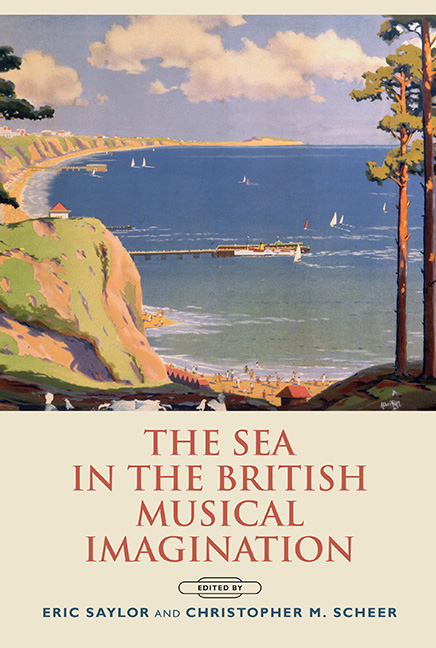5 - ‘Come away, fellow sailors’: Musical Characterization of the Nautical Profession in Seventeenth-Century England
Published online by Cambridge University Press: 12 June 2021
Summary
IN THEIR OPERA Dido and Aeneas, Henry Purcell and Nahum Tate created the most famous musical-theatrical portrayal of sailors in seventeenth-century England. ‘Come away, fellow sailors’, sing the nautical lads, espousing a love ‘em and leave ‘em philosophy towards women – a philosophy that darkly mirrors Aeneas's own behaviour as he prepares to callously desert Dido. The sailors’ raucous music, superficially jolly but embedded with hints of the descending chromatic tetrachord associated with Dido's death, serves as an aural analogue for their entertaining yet disruptive position in the opera.
Purcell and Tate's musical sailors – rollicking, drunken, and womanizing – were part of a much larger discursive tradition. Sailors were heroic, expert seamen who navigated difficult waters and comported themselves with bravery in naval battle: they possessed the necessary attributes for protecting an island nation. These nautical virtues were increasingly prized, as sailors played crucial roles in executing foreign policy and acquiring riches from abroad. On the other hand, sailors also frequently exhibited undesirable and disruptive behaviours. In English ports, sailors’ sexual promiscuity and tendency to brawl (often exacerbated by the consumption of copious amounts of alcohol) threatened social harmony and order. As we shall see, musical depictions of both types of sailors – in ballads, masques, plays, and operas – played an integral role in shaping popular notions of English identity during this period of colonial expansion, for the sailor was a figure that could mediate between English Self and Foreign Other.
Newfound Lands: Brave Sailors, Martial Might, and the Colonial Enterprise
Sailors have occupied a special place in the English imagination since the reign of Elizabeth I, but this fascination intensified in the later seventeenth century as monarchs sponsored expeditions to establish territorial claims and exploit the natural resources in Ireland, North America, the West Indies, the South Seas, Africa, and Asia. Stories of the New World and its bounty were promulgated across multiple media. Travel narratives written by John White and others described the riches of these lands, as well as the habits of the natives who resided there. The trope of the courageous sailor emerged from these narratives, for the sailor procured goods and territory for his home country at great personal cost.
- Type
- Chapter
- Information
- The Sea in the British Musical Imagination , pp. 83 - 104Publisher: Boydell & BrewerPrint publication year: 2015
- 1
- Cited by



